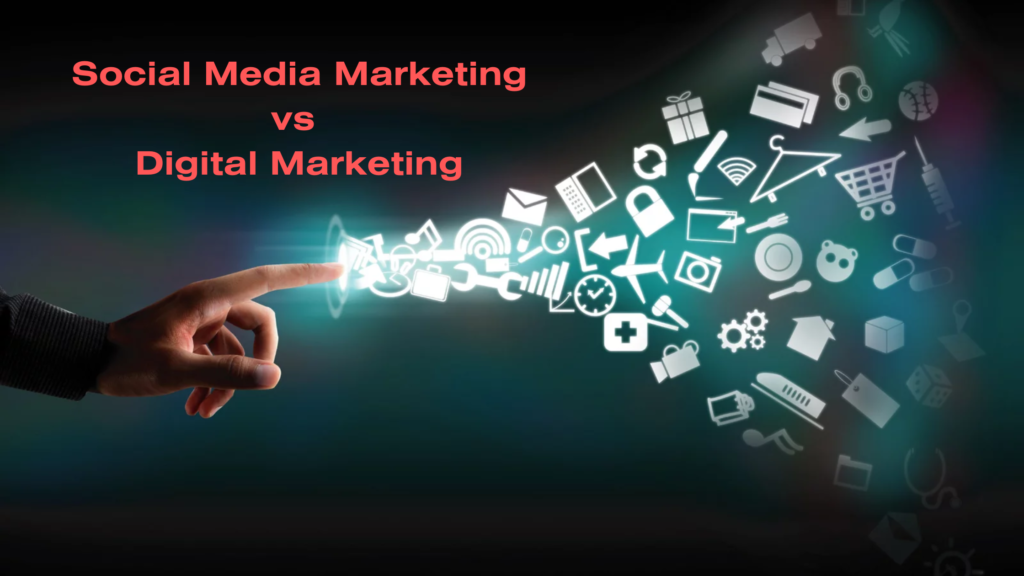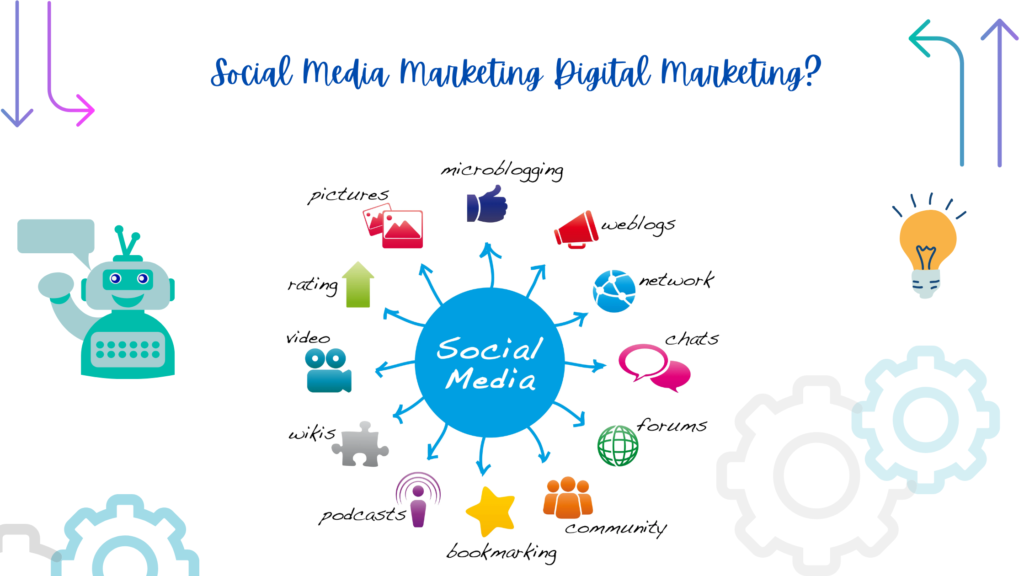
In today’s digital age, businesses have a multitude of options when it comes to promoting their products or services online. However, two terms that are often used interchangeably but hold distinct meanings are “social media marketing” and “digital marketing.” While these two strategies are related, they differ in their approach, scope, and tactics. In this blog post, we’ll explore the key differences between social media marketing and digital marketing to help you make informed decisions for your marketing efforts.
What is Social Media Marketing?
Definition and Purpose
Social media marketing refers to the process of utilizing social media platforms, such as Facebook, Instagram, Twitter, LinkedIn, and others, to promote a brand, product, or service. The primary goal of social media marketing is to engage with potential and existing customers, build brand awareness, and drive conversions through social interactions, content sharing, and targeted advertising.
Key Tactics
Some of the key tactics employed in social media marketing include:
- Creating and sharing engaging content (posts, videos, images, stories)
- Running social media advertising campaigns
- Influencer marketing
- Social media contests and giveaways
- Community management and customer engagement
What is Digital Marketing?
Definition and Purpose
Digital marketing is an umbrella term that encompasses all marketing efforts that utilize digital channels and technologies. Its primary objective is to promote products, services, or brands through various online platforms and mediums, reaching a broader audience and driving measurable results.
Key Components
Digital marketing encompasses several components, including:
- Search Engine Optimization (SEO)
- Pay-Per-Click (PPC) advertising
- Content marketing
- Email marketing
- Affiliate marketing
- Social media marketing
The Difference Between Social Media Marketing and Digital Marketing
While social media marketing is a subset of digital marketing, there are several key differences between the two:
Scope
Digital marketing has a broader scope, encompassing various online channels and tactics, while social media marketing focuses specifically on leveraging social media platforms for marketing purposes.
Audience Reach
Digital marketing aims to reach a wider audience through various digital channels, while social media marketing primarily targets audiences active on specific social media platforms.
Goals and Objectives
The primary goals of digital marketing can vary from driving website traffic, generating leads, and increasing sales, while social media marketing is more focused on building brand awareness, engaging with customers, and driving social interactions.
Content and Tactics
Digital marketing employs a diverse range of tactics, including SEO, PPC advertising, email marketing, and content marketing, while social media marketing primarily revolves around creating and sharing engaging content, running social media ads, and leveraging influencer marketing.
Conclusion
While social media marketing and digital marketing share some overlapping elements, they are distinct strategies with different scopes, goals, and tactics. Understanding the differences between the two is crucial for businesses to create effective marketing campaigns tailored to their specific objectives and target audiences. By leveraging both social media marketing and other digital marketing channels effectively, businesses can maximize their online presence, engage with customers, and drive measurable results


